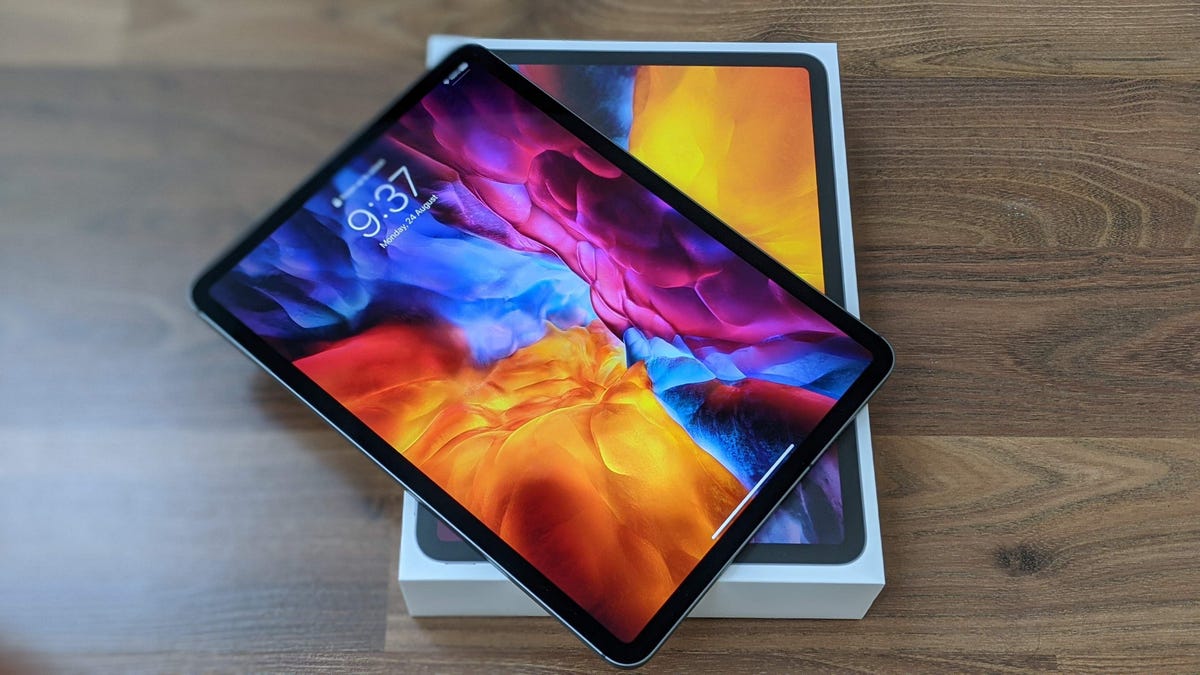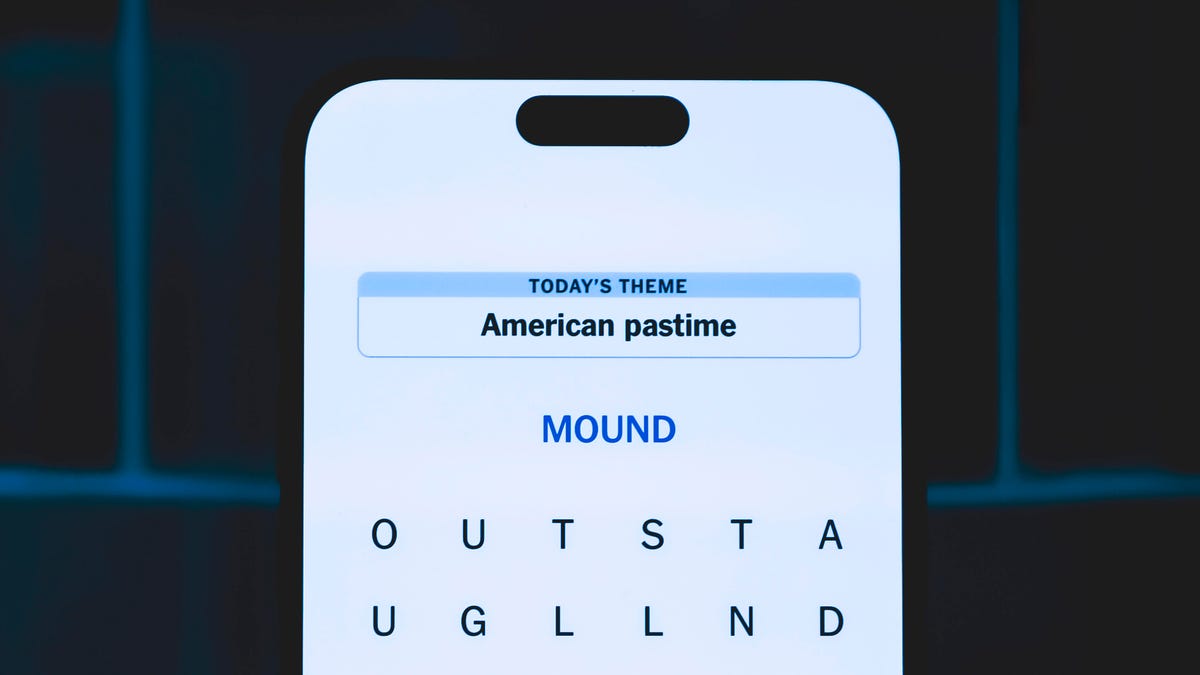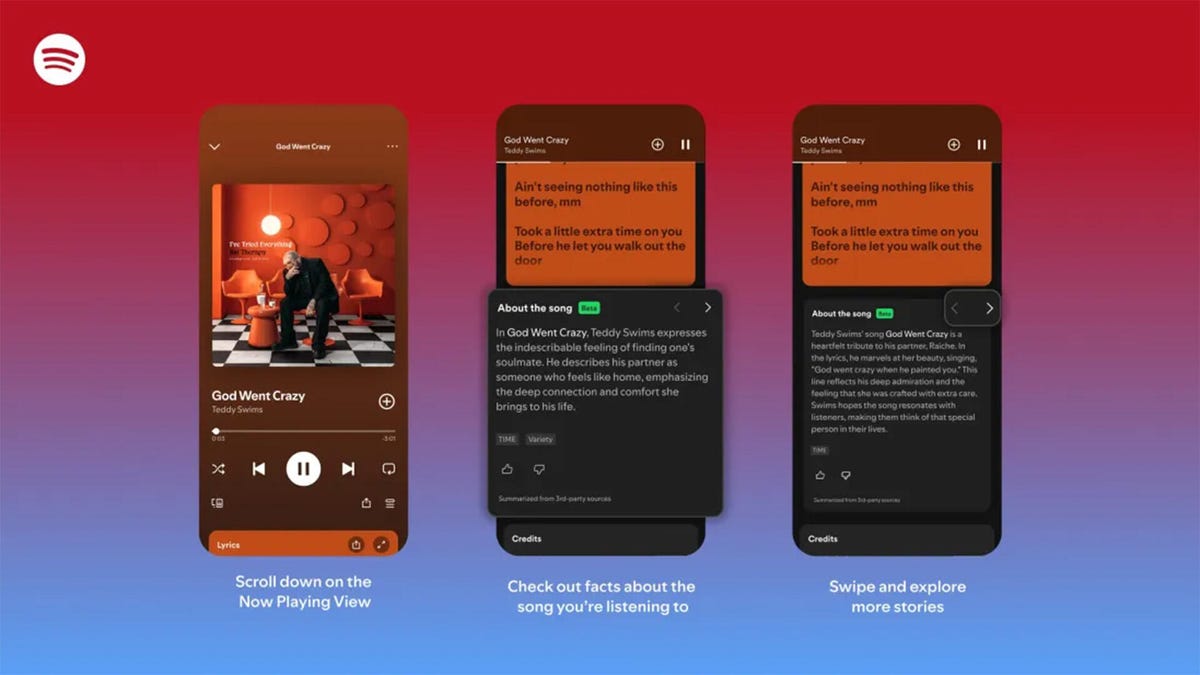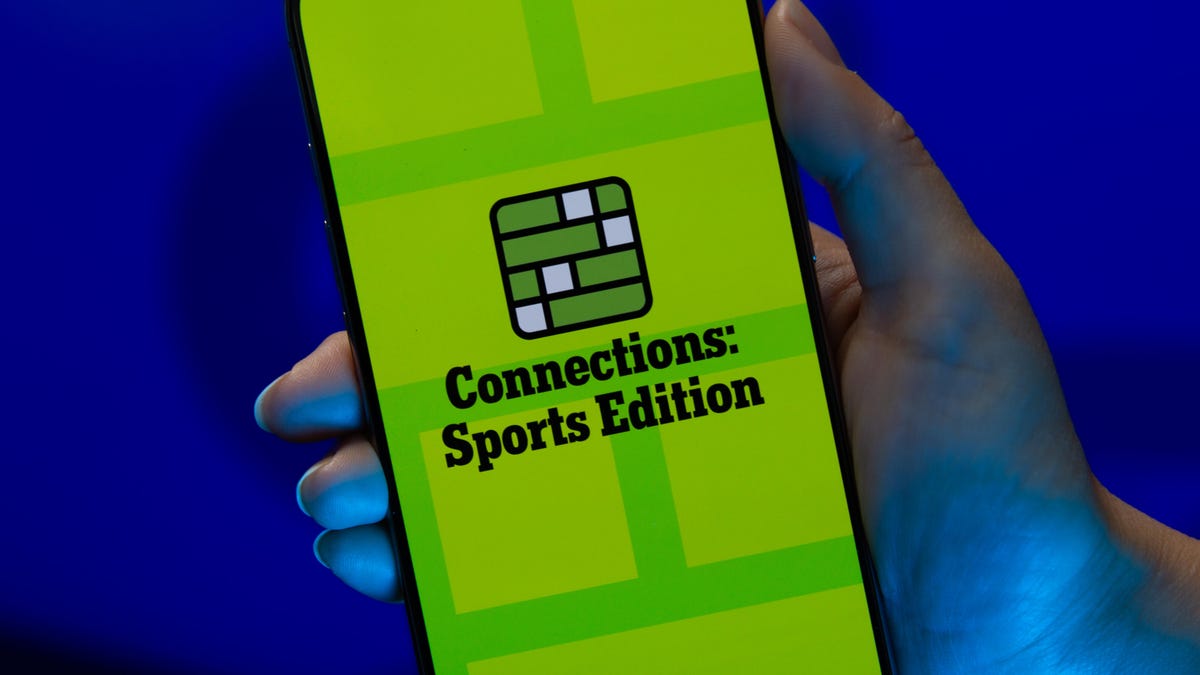Technologies
New iPad for Christmas? Don’t Overlook These Cool Features
You should be using these iPad features.

This story is part of 12 Days of Tips, helping you make the most of your tech, home and health during the holiday season.
It doesn’t matter if you have an iPad, iPad Pro or iPad Air, there’s no denying the excitement that accompanies using a new iPad, or even exploring what’s new in a big software update on your old one. Once you get all your settings in order, there are many cool features you’ll want to explore on your iPad.
A good spot to start is the Tips collection. You should be able to find the Tips information hub in your default widget setup, but otherwise, you can also find it in your apps library under Information and Reading.
There’s a lot to see and do, but here are our favorite fun features on the iPad to get you started.
Arrange your home screen widgets
When you finally reach your iPad home screen, you’ll notice the widget layout. By default, your iPad will include the clock, notes, calendar, weather and news. You can edit this layout to best fit your needs. Even if you’re happy with the default apps in place, long-press the app to see extra customization options, or hold and drag to rearrange the widgets.
If you want to edit the widgets, swipe right on the screen and tap Edit. From here you can remove or add widgets, giving you quicker access to the e-book you’re reading or your favorite games or streaming service.
Check out Apple’s free trials
A new iOS device includes a free trial for Apple TV Plus and Apple Arcade — a CNET Editors’ Choice award pick. So, in addition to downloading your favorite TV streaming apps, games and linking accounts, you can try something new.
Apple Arcade is Apple’s $5-a-month mobile gaming service. It includes hundreds of games you can play offline and more are added every week. With a new iOS device, you can try out Apple Arcade with a three-month free trial, as well as a one-month free trial for new subscribers. Apple TV Plus is Apple’s subscription video service that includes original TV shows and movies like Ted Lasso, Schmigadoon and The Morning Show.
Join the dark side
Apple will ask if you want to have your device in light or dark mode during initial setup, but you can always make changes in the Settings app. Tap Display & Brightness to swap between modes, set custom schedules (like your screen dimming at sunset), and use True Tone, the feature that automatically adjusts your screen’s brightness based on current ambient lighting.
Split screen
I love using a split screen to keep a reference image nearby when I’m working on a drawing in the Procreate digital illustration app — another CNET Editors’ Choice award pick. But you can use split screen with just about any combination of apps. A common use might be opening your calendar app while writing out a to-do list in the reminders app. To start a split view, open an app, tap the small horizontal trio of dots at the top of your screen and choose the layout you want.
Scribble for Apple Pencil
If you use an Apple Pencil with your iPad, the Scribble feature, introduced in iOS 14, lets you do more without having to put your pencil down. The feature converts your handwriting, letting you write in text fields that you’d previously type in. It’s a great way to quickly jot down notes or put a personalized touch on things. For example, if you’re sketching in Procreate and need a reference image, you can open Google, jot what you’re searching for (just as you’d type it) and get the result — all without putting down your Apple Pencil.
Save time with Touch ID
If your iPad has a fingerprint sensor, it’s possible to enable Touch ID during your initial device setup. It’s not a requirement, but it can make signing in, as well as confirming purchases and downloads a bit quicker. If you want Touch ID on your iPad, open the Settings app and choose Touch ID & Passcode. The device passcode is one of the first things you’re prompted to set up after turning on your iPad, but you can change or turn off the passcode here as well.
To set up Touch ID, tap Add a Fingerprint and follow the prompts. Afterward, you can customize what your Touch ID can be used for, like unlocking your device and password autofill.
Use Sign in with Apple
Sign in with Apple is a feature to be aware of and use, rather than a setting to adjust on your device. The tool is another layer of defense for your security, like adjusting your device’s privacy settings or using privacy tools like a virtual private network or DuckDuckGo.
When you create a new account for an app or website, you can choose Sign in with Apple instead of signing in with Facebook, Google or email. The tool creates a random email address that can only be used for one specific app. The app or website will use the generated email, but Apple will forward any correspondence to your real email, protecting your identity. You can reply to whichever emails you like without exposing your personal email address.
There’s also the Hide My Email option. Apple creates a random email address for you to use when signing up for any service — you’ll recognize it by the unique alphanumeric string followed by @privaterelay.appleid.com.
Speech to text
If your ideas are flowing faster than you can type them out, the iPad has a dictation feature that works across email, text messages and notes. For example, you can open the Notes app and tap the microphone icon on the keyboard. Apple will ask if you want to enable dictation; tap yes. Now when you tap the microphone when it’s available on the keyboard, you can use speech to text. If you use speech to text in third-party apps, you may have to grant additional permissions.
To turn off speech to text, open the Settings app and tap Keyboards. Scroll down and toggle off Enable Dictation.
Learn more about your photos
The iPad photos app has a handy tool that works a bit like Google Lens. Open the photos app, choose an image and tap the little «i» in the upper-right corner. A panel will open and you can see details like camera spec information, as well as when the photo was taken. You can also add a caption and the location of the image.
You can also learn more about what’s in your photo. Tap the Look Up option in the info panel and your iPad will offer information from Siri, the web and maps (if applicable).
For more information, check out CNET’s list of the best iPads in 2022, how all the iPads compare and tips for your device.
Technologies
Today’s NYT Strands Hints, Answers and Help for Feb. 7 #706
Here are hints and answers for the NYT Strands puzzle for Feb. 7, No. 706.

Looking for the most recent Strands answer? Click here for our daily Strands hints, as well as our daily answers and hints for The New York Times Mini Crossword, Wordle, Connections and Connections: Sports Edition puzzles.
Today’s NYT Strands puzzle is especially tricky, as a variety of words could fit the theme. Some of the answers are difficult to unscramble, so if you need hints and answers, read on.
I go into depth about the rules for Strands in this story.
If you’re looking for today’s Wordle, Connections and Mini Crossword answers, you can visit CNET’s NYT puzzle hints page.
Read more: NYT Connections Turns 1: These Are the 5 Toughest Puzzles So Far
Hint for today’s Strands puzzle
Today’s Strands theme is: Boo-o-o-o-ring
If that doesn’t help you, here’s a clue: Zzzz… not very exciting.
Clue words to unlock in-game hints
Your goal is to find hidden words that fit the puzzle’s theme. If you’re stuck, find any words you can. Every time you find three words of four letters or more, Strands will reveal one of the theme words. These are the words I used to get those hints but any words of four or more letters that you find will work:
- HIND, DATE, DRUM, MOST, CHIN, PAIN, RAIN, NOSE, TOME, TOMES
Answers for today’s Strands puzzle
These are the answers that tie into the theme. The goal of the puzzle is to find them all, including the spangram, a theme word that reaches from one side of the puzzle to the other. When you have all of them (I originally thought there were always eight but learned that the number can vary), every letter on the board will be used. Here are the nonspangram answers:
- DULL, DREARY, HUMDRUM, MUNDANE, TIRESOME
Today’s Strands spangram
Today’s Strands spangram is WATCHINGPAINTDRY. To find it, start with the W that’s three letters up from the bottom on the far-left row, and wind up, across and down.
Toughest Strands puzzles
Here are some of the Strands topics I’ve found to be the toughest.
#1: Dated slang. Maybe you didn’t even use this lingo when it was cool. Toughest word: PHAT.
#2: Thar she blows! I guess marine biologists might ace this one. Toughest word: BALEEN or RIGHT.
#3: Off the hook. Again, it helps to know a lot about sea creatures. Sorry, Charlie. Toughest word: BIGEYE or SKIPJACK.
Technologies
Spotify Launches ‘About the Song’ Beta to Reveal Stories Behind the Music
The stories are told on swipeable cards as you listen to the song.

Did you know Chappell Roan drew inspiration for her hit song Pink Pony Club from The Pink Cadillac, the name of a hot-pink strip club in her Missouri hometown? Or that Fountains of Wayne’s song Stacy’s Mom was inspired by a confessed crush a friend had on the late co-founder Adam Schlesinger’s grandmother?
If you’re a fan of knowing juicy little tidbits about popular songs, you might find more trivia in About the Song, a new feature from streaming giant Spotify that’s kind of like the old VH1 show Pop-Up Video.
About the Song is available in the US, UK, New Zealand and Australia, initially for Spotify Premium members only. It’s only on certain songs, but it will likely keep rolling out to more music. Music facts are sourced from a variety of websites and summarized by AI, and appear below the song’s lyrics when you’re playing a particular song.
«Music fans know the feeling: A song stops you in your tracks, and you immediately want to know more. What inspired it, and what’s the meaning behind it? We believe that understanding the craft and context behind a song can deepen your connection to the music you love,» Spotify wrote in a blog post.
While this version of the feature is new, it’s not the first time Spotify has featured fun facts about the music it plays. The streaming giant partnered with Genius a decade ago for Behind the Lyrics, which included themed playlists with factoids and trivia about each song. Spotify kept this up for a few years before canceling due to multiple controversies, including Paramore’s Hayley Williams blasting Genius for using inaccurate and outdated information.
Spotify soon started testing its Storyline feature, which featured fun facts about songs in a limited capacity for some users, but was never released as a central feature.
About the Song is the latest in a long string of announcements from Spotify, including a Page Match feature that lets you seamlessly switch to an audiobook from a physical book, and an AI tool that creates playlists for you. Spotify also recently announced that it’ll start selling physical books.
How to use About the Song
If you’re a Spotify Premium user, the feature should be available the next time you listen to music on the app.
- Start listening to any supported song.
- Scroll down past the lyrics preview box to the About the Song box.
- Swipe left and right to see more facts about the song.
I tried this with a few tracks, and was pleased to learn that it doesn’t just work for the most recent hits. Spotify’s card for Metallica’s 1986 song Master of Puppets notes the song’s surge in popularity after its cameo in a 2022 episode of Stranger Things. The second card discusses the band’s album art for Master of Puppets and how it was conceptualized.
To see how far support for the feature really went, I looked up a few tracks from off the beaten path, like NoFX’s The Decline and Ice Nine Kills’ Thank God It’s Friday. Spotify supported every track I personally checked.
There does appear to be a limit to the depth of the fun facts, which makes sense since not every song has a complicated story. For those songs, Spotify defaults to trivia about the album that features the music or an AI summary of the lyrics and what they might mean.
Technologies
Today’s NYT Connections: Sports Edition Hints and Answers for Feb. 7, #502
Here are hints and the answers for the NYT Connections: Sports Edition puzzle for Feb. 7, No. 502.

Looking for the most recent regular Connections answers? Click here for today’s Connections hints, as well as our daily answers and hints for The New York Times Mini Crossword, Wordle and Strands puzzles.
Today’s Connections: Sports Edition features a fun batch of categories. The purple one requires you to find hidden words inside some of the grid words, but they’re not too obscure. If you’re struggling with today’s puzzle but still want to solve it, read on for hints and the answers.
Connections: Sports Edition is published by The Athletic, the subscription-based sports journalism site owned by The Times. It doesn’t appear in the NYT Games app, but it does in The Athletic’s own app. Or you can play it for free online.
Read more: NYT Connections: Sports Edition Puzzle Comes Out of Beta
Hints for today’s Connections: Sports Edition groups
Here are four hints for the groupings in today’s Connections: Sports Edition puzzle, ranked from the easiest yellow group to the tough (and sometimes bizarre) purple group.
Yellow group hint: Golden Gate.
Green group hint: It’s «Shotime!»
Blue group hint: Same first name.
Purple group hint: Tweak a team name.
Answers for today’s Connections: Sports Edition groups
Yellow group: Bay Area teams.
Green group: Associated with Shohei Ohtani.
Blue group: Coaching Mikes.
Purple group: MLB teams, with the last letter changed.
Read more: Wordle Cheat Sheet: Here Are the Most Popular Letters Used in English Words
What are today’s Connections: Sports Edition answers?
The yellow words in today’s Connections
The theme is Bay Area teams. The four answers are 49ers, Giants, Sharks and Valkyries.
The green words in today’s Connections
The theme is associated with Shohei Ohtani. The four answers are Decoy, Dodgers, Japan and two-way.
The blue words in today’s Connections
The theme is coaching Mikes. The four answers are Macdonald, McCarthy, Tomlin and Vrabel.
The purple words in today’s Connections
The theme is MLB teams, with the last letter changed. The four answers are Angelo (Angels), Cuba (Cubs), redo (Reds) and twine (Twins).
-

 Technologies3 года ago
Technologies3 года agoTech Companies Need to Be Held Accountable for Security, Experts Say
-

 Technologies3 года ago
Technologies3 года agoBest Handheld Game Console in 2023
-

 Technologies3 года ago
Technologies3 года agoTighten Up Your VR Game With the Best Head Straps for Quest 2
-

 Technologies4 года ago
Technologies4 года agoBlack Friday 2021: The best deals on TVs, headphones, kitchenware, and more
-

 Technologies5 лет ago
Technologies5 лет agoGoogle to require vaccinations as Silicon Valley rethinks return-to-office policies
-

 Technologies5 лет ago
Technologies5 лет agoVerum, Wickr and Threema: next generation secured messengers
-

 Technologies4 года ago
Technologies4 года agoOlivia Harlan Dekker for Verum Messenger
-

 Technologies4 года ago
Technologies4 года agoiPhone 13 event: How to watch Apple’s big announcement tomorrow
